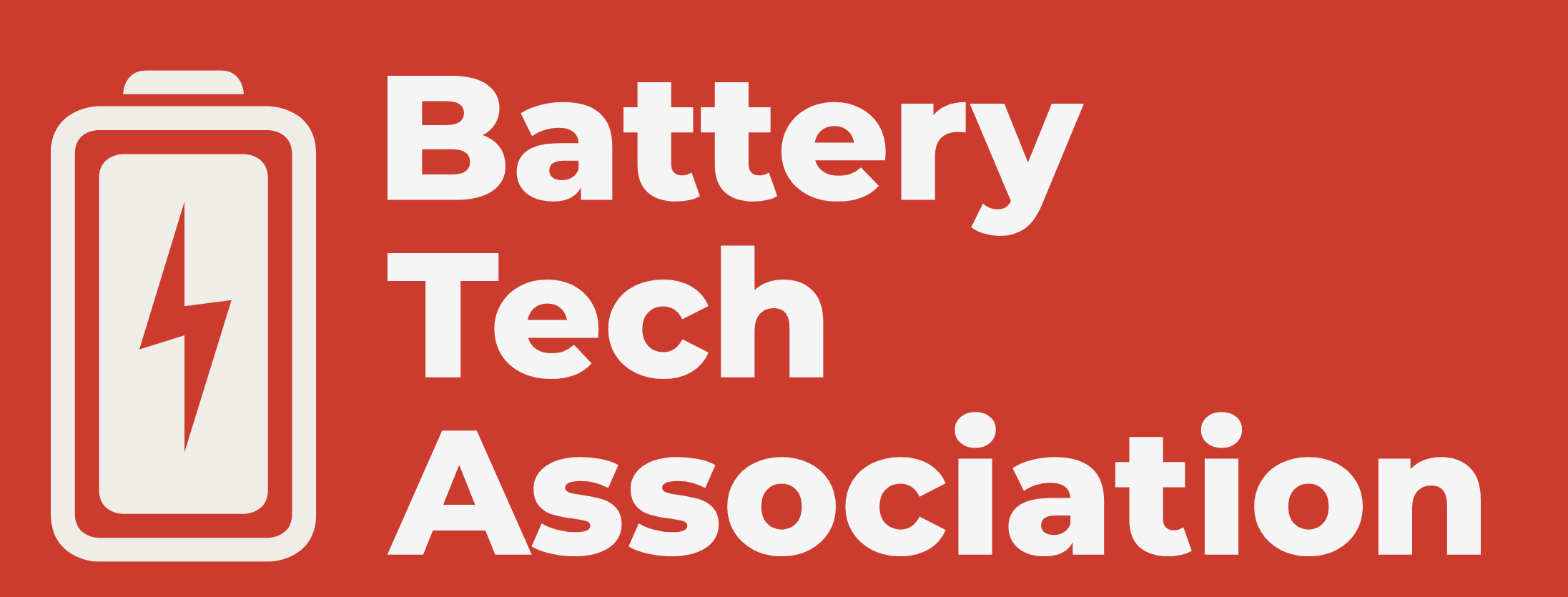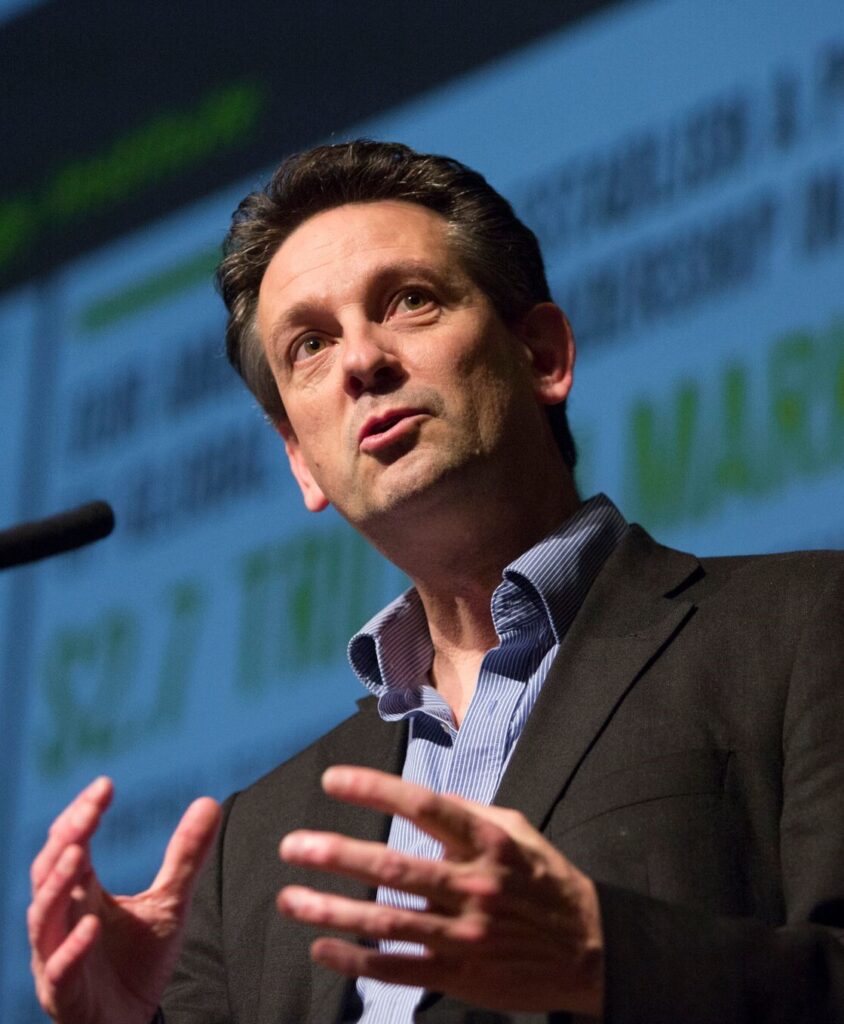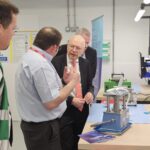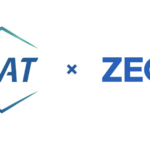Experienced leader of multi-institutional research programmes to shape energy storage research for UK and global impact
HARWELL, UK (19 June 2024) The Faraday Institution, the UK’s flagship institute for electrochemical energy storage research, announces Professor Martin Freer as its next Chief Executive Officer.
As an accomplished leader of large-scale collaborative research programmes operating at the intersection of science and policy, Professor Freer will head the organisation as it continues to drive forward battery research towards application-inspired goals for the benefit of the UK.
Professor Freer will assume the role effective 2nd September 2024.
Professor Sir Steven Cowley, Chair Elect of the Faraday Institution commented:
“The Faraday Institution’s programme is improving energy storage technology for multiple sectors, speeding its adoption, and opening economic opportunities for the UK. In Martin Freer the organisation has found a proven leader and scientist who knows first-hand what it takes to work with industry and policy makers to translate research into future energy technologies on the ground. Martin is a terrific fit to the Faraday Institution and will help to accelerate its mission as it further establishes itself in the UK’s research ecosystem.”
Accepting the position Professor Martin Freer commented:
“Delivering technologies to help us collectively reach net zero are some of the most fundamental and urgent science and innovation questions of our time. Energy storage will play a huge role in the future technology mix that will enable everything from low carbon transport to high penetration of renewable generation on the grid. I’m excited at the prospect of leading the Faraday Institution team, building on the existing strong foundations to further develop its research programme, delivering impact to industry and society as the organisation moves to its next phase.”
Professor Freer is a nuclear physicist. Since 2015 he has served as the Director of the Birmingham Energy Institute (BEI) at the University of Birmingham, a pan-discipline research centre with research activities from hydrogen, energy storage and battery technologies, through to nuclear energy, which is focused on creating technology and guiding policy that will shape future energy solutions. He has also served as Director of the Energy Research Accelerator (which comprises eight internationally renowned Midlands universities that are part of the Midlands Innovation partnership, together with the British Geological Survey) delivering a £200m programme to accelerate university research into regional, national and international impact linked to 1,400 researchers.
Previously, Martin was Director of the Birmingham Centre for Nuclear Education and Research, which he established in 2010. He oversaw the development of the BEI and helped establish Energy Capital (a regional energy partnership for the West Midlands that brings the public and private sectors together to deliver place-based energy solutions). He also co-led the establishment of the joint University of Birmingham–Fraunhofer Germany research platform, the development of the Birmingham Energy Innovation Hub, and the co-development of Tyseley Energy Park in Birmingham.
Professor Freer joins a strong, capable and committed executive team and staff, a vibrant research community, and a Board of Trustees with deep expertise in research and development, energy storage, the energy sector and auto industry. Collectively they will continue to drive the organisation’s mission of delivering scientific breakthroughs in energy storage to industry-defined goals.
A full biography and photograph are available online.
###
Notes to Editors
About the Faraday Institution
The Faraday Institution is the UK’s independent institute for electrochemical energy storage research, skills development, market analysis, and early-stage commercialisation. Bringing together expertise from universities and industry, the Faraday Institution endeavours to make the UK the go-to place for the research and development of new electrical storage technologies for both the automotive and wider relevant sectors. Headquartered at the Harwell Science and Innovation Campus, the Faraday Institution is a registered charity with an independent board of trustees, and a delivery partner for the Faraday Battery Challenge.
For more information on the Faraday Institution, visit www.faraday.ac.uk and follow @FaradayInst on twitter (X).
The Faraday Battery Challenge at UK Research and Innovation is delivered by Innovate UK. The Challenge is making the UK a science and innovation superpower for batteries, supporting the UK’s world-class battery facilities along with growing innovative businesses that are developing the battery supply chain for our future prosperity. Its aim is to build a high-tech, high-value, high-skill battery industry in the UK.
About UK Research and Innovation
UK Research and Innovation (UKRI) is the largest public funder of research and innovation in the UK, with a budget of around £8bn. It is composed of seven disciplinary research councils, Innovate UK and Research England.
We operate across the whole country and work with our many partners in higher education, research organisations businesses, government, and charities.
Our vision is for an outstanding research and innovation system in the UK that gives everyone the opportunity to contribute and to benefit, enriching lives locally, nationally and internationally.
Our mission is to convene, catalyse and invest in close collaboration with others to build a thriving, inclusive research and innovation system that connects discovery to prosperity and public good.
www.ukri.org







